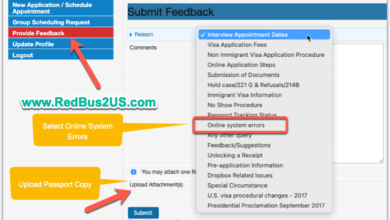joint travel regulations A Comprehensive Guide to Understanding

Introduction
Military service entails frequent travel, whether from governmental assignments or private reasons. The Department de Defense (DoD) has created a thorough set of guidelines known by the Joint Travel Regulation (JTR) to make sure that military personnel and their families are fairly compensated and supported while traveling. The benefits, allowances, and guidelines for travel by service members and their dependents are described in these regulations, often known as JTR. In this post, we’ll examine the Joint Travel Regulations‘ most important features, stressing their importance and outlining its primary requirements.
The Regulations for Joint Travel
Joint Travel Regulations are essential to the military community for the following reasons:
JTR makes sure that the entitlements as well as allowances provided to military troops when they are traveling are uniform. The promotion of fairness and consistency among the various military branches depends heavily on this uniformity.
Monetary Accountability: The JTR offers a precise and uniform framework for controlling travel-related expenses. It aids in cost management for the military by stating which expenses are covered with what rates.
Support for troops: JTR contributes to the financial security of military troops and their dependents when they are traveling by establishing entitlement and allowances. To preserve readiness and morale, assistance is necessary.
JTR makes sure that all travel-related operations abide by all applicable federal rules and regulations. By doing this, any abuse or misuse of travel perks is prevented.
Important Clauses of the Joint Travel Regulations
Travel Benefits: JTR outlines the benefits that military personnel are entitled to when on official business trips. This covers accommodation, travel expenses, and daily allowances. To reflect current costs, the rates associated with these allowances are changed frequently.
Dependent Travel: The JTR also provides the guidelines for dependents’ travel, such as that of spouses and kids who accompany military personnel on official trips. It outlines the conditions for dependents’ eligibility for travel benefits.
Travel for Temporary Duty (TDY): JTR offers instructions on how to get reimbursed for costs incurred, such as housing, meals, and transportation, when a service person is sent to temporary duty deployments away from their permanent duty station.
JTR provides instructions :on how to fill out and submit vouchers for travel in order to get reimbursed for acceptable travel expenses. It contains information about the necessary paperwork and the deadline for submitting vouchers.
Travel Advances: JTR outlines the procedure to receive travel advances as well as the obligations involved with repaying them in circumstances where military members need money in ahead of their travel.
Travel limits: The JTR contains regulations about travel limits, such as restrictions on visiting particular locations owing to security issues. It also covers situations in which travel might be postponed or cancelled.
Per Diem Prices: Per diem rates are a crucial component of JTR because they pay for everyday costs like meals and sundries. The place of origin and the individual’s status (service member, dependent on others, or civilian employee) both affect the rates.
Government-provided transportation: privately purchased transportation (PPT), and rates for mileage reimbursement when using a personal vehicle are all covered in depth by JTR’s section on transportation entitlements.
Meals and housing: JTR outlines the rules for lodging and meal reimbursements. The status, location, and length of the trip are taken into account when determining these allowances.
Travel to Foreign Countries: JTR provides advice on conversion of currencies, foreign area daily rates, and other issues specific to international travel for military personnel.
Conclusion
The Joint Travel Regulations are essential in making sure that soldiers and their dependents are treated fairly and consistently while traveling. JTR facilitates official travel by offering a defined framework for rights, allowances, and procedures. This eases financial pressures on service members and upholds accountability for travel-related costs.
It’s crucial for military personnel and their loved ones to get familiar with the Combined Travel Regulations that apply to their circumstance and branch of service. Military financing offices and travel specialists are also excellent sources for answering any queries you might have regarding JTR compliance.
Joint Travel Regulations are a crucial tool in promoting the health and preparedness of our committed service members as well as their families in a world when travel is a continual part of military life.




